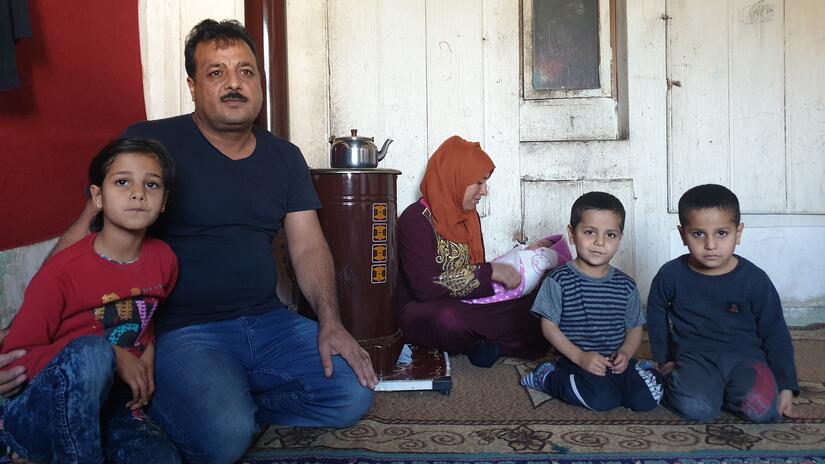Before the everlasting war in Syria, Sabit El Hacco used to grow wheat on his own farm. However, when he fled conflict in 2016 and arrived in Turkey, the conditions drastically changed for him and his family. El Hacco continued to work as a farmer but this time seasonally on other family’s lands, oftentimes struggling to make ends meet.
“We used to cultivate our own fields back at home, growing wheat. Here, when there is an opportunity, we continue to work as farmers. However, there are no jobs in winter,” said El Hacco.
Living with his family of 12 in a shanty house located in Ankara’s Beypazarı district, famous for its agriculture, El Hacco tries to do what he knows best to be able to provide for his 10 children. However, without speaking the local language, securing a stable income stands as a challenge.
“Without speaking the language, the job opportunities are very limited. For this reason, I applied to the district governorship’s Turkish language course,” said El Hacco.
El Hacco began receiving monthly cash assistance from Turkish Red Crescent through the Emergency Social Safety Net (ESSN) programme in coordination with the International Federation of the Red Cross and Red Crescent (IFRC) and funded by the EU. It allowed Sabit to focus on learning the local language and re-establishing his life in Turkey without worrying about his family’s day-to-day needs.
“We wouldn’t be able to afford shelter to be under or even take care of our children without Kızılaykart,” said El Hacco.
“ESSN means being free of debts, having a shelter, having a life to us,” he adds.
More about the Emergency Social Safety Net (ESSN) programme
Funded by the European Union’s Civil Protection and Humanitarian Aid Operations (ECHO), IFRC and Turkish Red Crescent are providing monthly cash assistance via debit cards to the most vulnerable refugees in Turkey under the ESSN programme. This is the largest humanitarian programme in the history of the EU and the largest programme ever implemented by the IFRC.
ESSN is providing cash to the most vulnerable refugee families living in Turkey. Every month, they receive 120 Turkish Lira (18 euros), enabling them to decide for themselves how to cover essential needs like rent, transport, bills, food, and medicine.
*This story was originally published on Turkish Red Crescent’s kizilaykart.org website and adapted by the IFRC.
This article covers humanitarian aid activities implemented with the financial assistance of the European Union. The views expressed herein should not be taken, in any way, to reflect the official opinion of the European Union, and the European Commission is not responsible for any use that may be made of the information it contains.
Article
Rural Guatemalan women at the heart of community health
Rural Guatemalan women at the heart of community health
| Article

